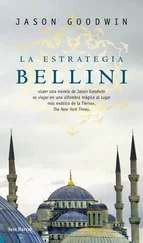Jason Goodwin - The snake stone
Здесь есть возможность читать онлайн «Jason Goodwin - The snake stone» весь текст электронной книги совершенно бесплатно (целиком полную версию без сокращений). В некоторых случаях можно слушать аудио, скачать через торрент в формате fb2 и присутствует краткое содержание. Жанр: Исторический детектив, на английском языке. Описание произведения, (предисловие) а так же отзывы посетителей доступны на портале библиотеки ЛибКат.
- Название:The snake stone
- Автор:
- Жанр:
- Год:неизвестен
- ISBN:нет данных
- Рейтинг книги:4 / 5. Голосов: 1
-
Избранное:Добавить в избранное
- Отзывы:
-
Ваша оценка:
- 80
- 1
- 2
- 3
- 4
- 5
The snake stone: краткое содержание, описание и аннотация
Предлагаем к чтению аннотацию, описание, краткое содержание или предисловие (зависит от того, что написал сам автор книги «The snake stone»). Если вы не нашли необходимую информацию о книге — напишите в комментариях, мы постараемся отыскать её.
The snake stone — читать онлайн бесплатно полную книгу (весь текст) целиком
Ниже представлен текст книги, разбитый по страницам. Система сохранения места последней прочитанной страницы, позволяет с удобством читать онлайн бесплатно книгу «The snake stone», без необходимости каждый раз заново искать на чём Вы остановились. Поставьте закладку, и сможете в любой момент перейти на страницу, на которой закончили чтение.
Интервал:
Закладка:
Faisal al-Mehmed turned his attention to the courtyard. Even he would have to admit that the courtyard of Aya Sofia was not perfect, as the courtyard of the Suleymaniye was sublime. It had its fountain, where men were sitting in silence, washing their hands and feet; but it was a truncated court, without a colonnade to provide the faithful with shade, and the white marble threw off a fierce glare in the morning sun.
He squinted into the bright light. It seemed to Faisal al-Mehmed that a woman was coming across the court, a tall woman who walked with immodest ease, unveiled. His eyebrows met in a black frown. He looked again, shielding the side of his face. It was unthinkable-but there she was, a woman, a very beautiful woman, making her way past the knots of men standing in the courtyard, waiting for the hour of prayer, toward the fountain. He scanned the courtyard, looking for the man who was with her. How could he allow such a thing! Already, some of the men had stopped talking and were staring after her. And now, Faisal al-Mehmed saw, she was unlatching her shoes, as if she were a man, preparing to wash.
It was too much. Sometimes madmen did appear at Aya Sofia-ranting dervishes, perhaps, from the hills, strange, bearded fanatics from the deserts, once even a naked man who had come rushing into the precincts of the holy place, laughing and clapping his hands. It was not the gatekeeper’s place to judge them, for they were all of God’s creation: who was to say that the mad were not greater men, who had looked on the face of God and found rapture? So said the wise. God, they said, took care of His people, but a madwoman? A man should be taking care of her. It was very shocking.
He began to hobble forward. He raised a trembling hand. Already, the men were standing around the woman, watching her, dumbfounded. Somebody spoke to her. She looked up and smiled and shook her head. Her scarf slipped back an inch.
The gatekeeper began to run. He waved his arms. “No! No! Haram! Haram! ” It is forbidden!
One of the men pointed to the woman’s hair. The others looked around at the running gatekeeper, then back at the woman.
“See!” a voice cried out. “She is an unbeliever.”
The woman had put up her hands. She was backing away. A ring of men gathered behind her. She turned. They began to shout.
The gatekeeper took her by the arm. “What is this, you foolish daughter?”
A stone landed at their feet. The gatekeeper looked down at the stone, then swung around. There was quite a crowd now. Some of them were shaking their fists. Somebody stooped down and another stone whizzed through the air. Faisal al-Mehmed tugged at the woman’s arm.
He saw the fear on her face. A look of surprise.
“This is forbidden, don’t you understand. You must go!” He shook her roughly. He was pulling her away; the crowd parted, but only just. People were shouting. The muezzin began to cry from the minaret, and to the men below it seemed as if some hideous miracle were being enacted, some challenge had been issued. The shouting grew in intensity. Faisal al-Mehmed was afraid now.
A hand reached out and plucked away the woman’s scarf. Somebody spat. The woman shrank closer to the gatekeeper, who waved his hand ahead of them, trying to clear a path.
“She is a mad Giaour! Only mad! Please, good people, let us pass. She is going!”
The crowd surged around them, angry, yelling faces, men jostling for a better view: Faisal al-Mehmed’s voice was lost in the hubbub.
The crowd surged around them as he took the woman to the narrow gate. Faisal al-Mehmed began to pray, his voice echoing the voice of the imam overhead. “There is no god but the One God!”
The gate was thronged with worshipers arriving for prayers. It seemed to Faisal al-Mehmed that they would be cut down before they ever got through.
80
Yashim slid his feet through the water, one hand trailing against the wall of the tunnel, the other outstretched in front of his face.
He tried not to think. All his life he had had a horror of confinement. Even as a little boy he had fought like a wolf if his playmates tried to pin him down. He never followed them, either, into the caves they used to explore around his home on the Black Sea coast: there were rockfalls sometimes; tales of miners, trapped underground, used to visit him at night. Once had he been trapped himself. Confined, unable to move, staring wild-eyed at the men and the knife. The horror had risen in his gorge-and his life was changed.
He tried not to splash; it seemed to him that the level of the water had risen, that it was by his ankles, but the cold was so intense that he could not be sure. All that mattered was to get deep into the tunnel, away from the torchlight.
If only the pipe would curve.
A few steps farther on, his hand came up against a curved edge. He stopped and groped around. As far as he could tell in the dark, the channel forked; he was between two openings, both the same size, both carrying the current. He squatted down and glanced back.
For a dizzying moment he felt that he was staring at a solid wall, as if the tunnel had sealed itself behind him, and he reached out in a panic. The movement of his hand revealed to him the existence of a faint glow, which seemed to hang in the air in front of him. As he watched, it grew brighter, an aureole of faint light surrounding a pinprick of flame in the darkness.
The waterman was coming down the tunnel.
Yashim felt sick. He squeezed his eyes shut and fought the panic, fought the thought that he was being pressed deeper and deeper into the ground.
It’s a maze, he murmured to himself. Only a maze. In a maze, you must follow a rule.
Two tunnels. One bore to the left: it might descend the hill toward the Fener. The other, tending to the right, presumably took a line to the south. Yashim tried to picture the shape of his city, the rise and fall of its hills. One or both of these pipes might lead to another siphon, where the water pooled at a lower level than the tank it came from. Sooner or later, if that were the case, the pipe would start to grow full of water, like a curving reservoir, and he would have to stop moving.
Left or right?
Which way would the waterman come?
Yashim was right-handed.
The rule, in a maze, was to keep turning the same way at every bend. Trail his left hand on the wall and reach forward with his right.
That was the way.
Yashim put out his hand and groped for the opening on his left.
He started down. He felt the floor of the tunnel sloping. His hand trailed along the wall. It was no longer rough to the touch, but slimy and knobbled: he imagined it caked in calcareous lumps, dripping with shiny algae.
He advanced several yards. He almost missed the first turn, because he was swaying as he scuttled forward, and his hand missed the wall for a foot or two. When he reached out again he felt a hard corner; groping back, he discovered the opening he’d missed and turned into it. He thought of the horror of losing his way back.
Now he leaned his shoulder against the wall on his left. Like that he was in less danger of missing a turn, and from time to time he could pause and rest.
He wondered how much farther he needed to go. Three turns already, the chances of discovery were increasingly remote.
He decided to make one last turn, and then he would wait.
He shoved himself along, spreading the weight between his legs and his left shoulder, and that is when he found the turn.
He swiveled into it.
Something hard caught his foot as he slid around the corner.
He put out his hands, and fell into the void.
81
Amelie felt the crowd around her, dense and hostile, and the old man’s grip on her arm. He had been angry, but now he seemed only afraid. She bowed her head and tried to avoid the blows she could almost sense were about to rain down on her head.
Читать дальшеИнтервал:
Закладка:
Похожие книги на «The snake stone»
Представляем Вашему вниманию похожие книги на «The snake stone» списком для выбора. Мы отобрали схожую по названию и смыслу литературу в надежде предоставить читателям больше вариантов отыскать новые, интересные, ещё непрочитанные произведения.
Обсуждение, отзывы о книге «The snake stone» и просто собственные мнения читателей. Оставьте ваши комментарии, напишите, что Вы думаете о произведении, его смысле или главных героях. Укажите что конкретно понравилось, а что нет, и почему Вы так считаете.












